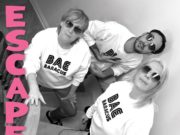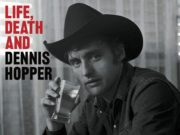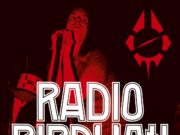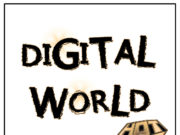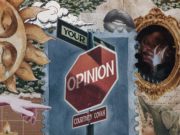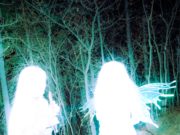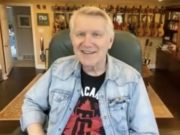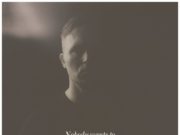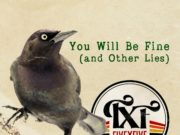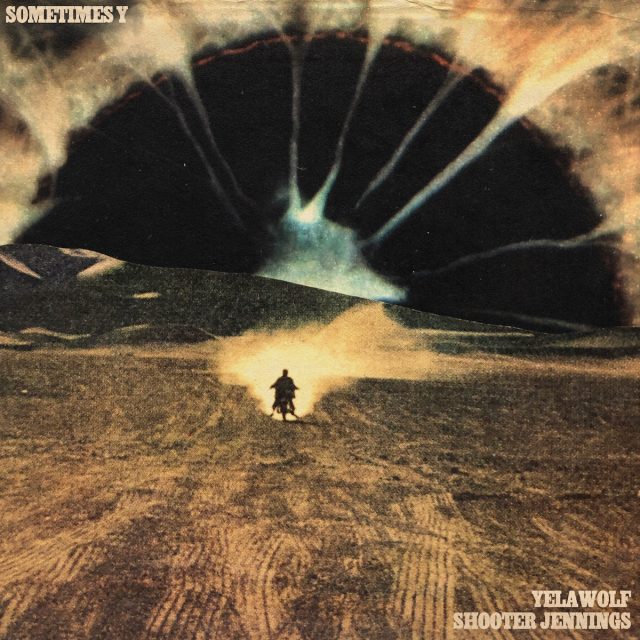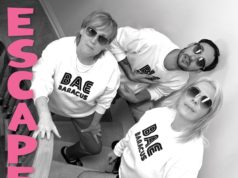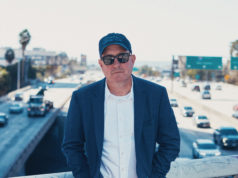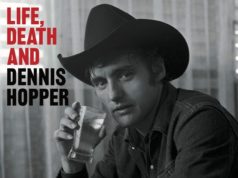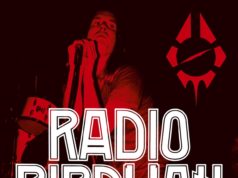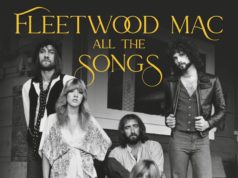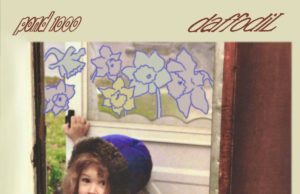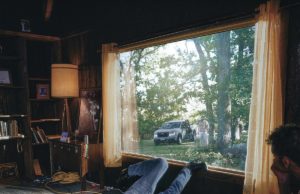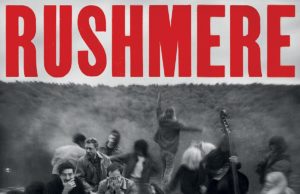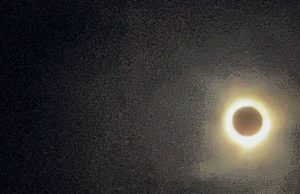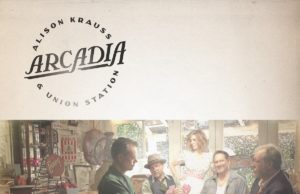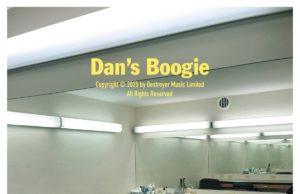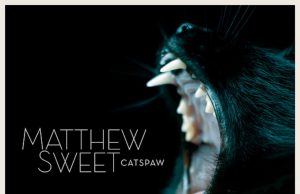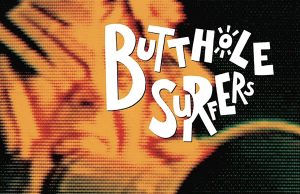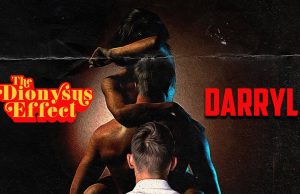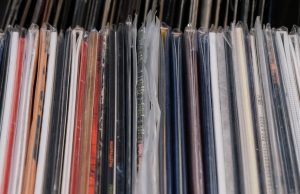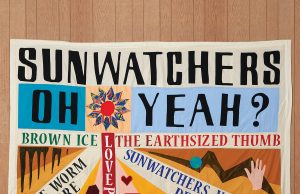I must have been asleep at the switch or something. This one actually came out two weeks back, but I completely missed it. I have no idea how that happened. I’ve been a fan of Shooter Jennings for years. I’ve heard enough Yelawolf to know he’s a cut above the usual crop of southern rappers. And I thought the preview singles were pretty solid — especially the flat-out ’80s-style rocker Make Me A Believer. Turns out the whole album is every bit as good as that. On the one hand, you’ve got Shooter’s roots-rock / ’70s glam / conspiracy theory / alien abduction / vintage pop / synth-fuelled weirdness. On the other, you’ve got Yela’s lyrical smarts, introspective poetry and melodic sensibilities. Put ’em together and you get an album that seems like some long-lost artifact from a world where Night Ranger, Tom Petty & The Heartbreakers, Lynyrd Skynyrd, Cheap Trick, David Bowie, Funkadelic and Ram Jam all got together in the studio. Don’t miss it. And don’t miss my interview with the duo, which you can watch right HERE.
THE EDITED PRESS RELEASE: “The first time Yelawolf and I connected on a track, it was like this fire exploded in my mind,” says Shooter Jennings. “It confirmed my long-held suspicion that there was something really special between the two of us.”
Special, it turns out, is a serious understatement when it comes to Jennings and Yelawolf’s extraordinary new collaboration, Sometimes Y. Recorded in the midst of the COVID-19 pandemic, the duo’s self-titled debut is a bold and intoxicating rock ’n’ roll hybrid, one that fuses past and future sounds to conjure up some alternate universe where David Bowie fronted Thin Lizzy or Axl Rose sang with The Cars. The songs here are as addictive as they are unpredictable, mixing ’80s bombast and arena rock energy with country earnestness and hip-hop swagger, and the performances are thrilling to match, fueled by the pair’s undeniable chemistry and irrepressible joy. Jennings’ production work is lush but never crowded, and Yelawolf’s lyrics are utterly arresting, grappling insightfully with purpose and perseverance, struggle and triumph, pain and transcendence. Weighty as the record can feel at times, it’s ultimately a work of liberation and release, an ecstatic declaration of creative freedom fueled by adventure, discovery, and a little bit of chaos, which is precisely what Sometimes Y is all about.
“When you’re a kid in school, they teach you all these rules about spelling,” Jennings explains, “but then they tell you about ‘Sometimes y,’ which calls the entire system into question. Suddenly everything’s out the window and you can do whatever you want. That’s what it felt like making this record.”
It’s little wonder Jennings and Yelawolf bonded over that shared sense of childlike wonder given the similarity of their upbringings. The son of Waylon Jennings and Jessi Colter, Shooter spent his early years surrounded by country and rock royalty, as did Yelawolf, whose mother’s partners worked on the road with artists like Randy Travis and Alabama. Though their parents ran in similar circles and the two even attended the same church growing up, Jennings and Yelawolf didn’t formally meet until 2008, when their paths crossed backstage at a show in Atlanta. At the time, Yelawolf was still teetering on the verge of stardom, but Jennings was already well aware of the fast-rising rapper’s reputation.
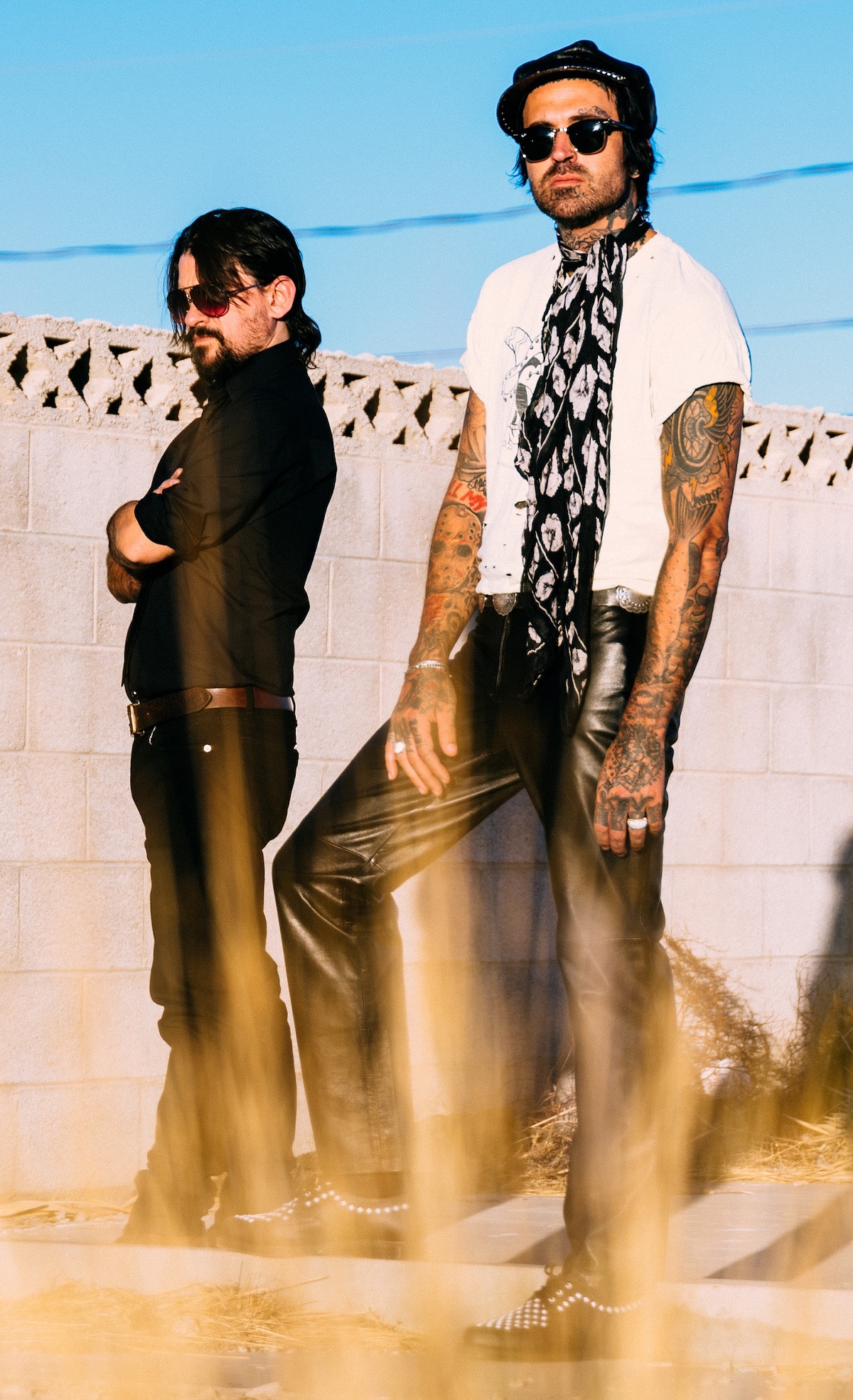
“One of the guys in my band was really into Yelawolf’s music, and he and I used to listen to it together in the back of the bus all the time,” says Jennings. “My nephew [Struggle Jennings] was a good friend of his, too, so I’d been hearing about Yelawolf for a while and was really excited to finally meet him.” For Yelawolf, the feeling was mutual. “I was a huge fan of Shooter’s songwriting and his whole perspective,” he explains. “We had really similar taste in music and hit it off right away, and we kept saying we should get together in the studio sometime.”
In the decade that followed, the two would continually flirt with the idea of collaborating but could never seem to sync their increasingly busy schedules. For his part, the hard-touring Yelawolf was well on his way to being hailed as “one of hip-hop’s most vital voices” and signing deals with Interscope and Eminem’s Shady Records. Jennings, on the other hand, was blossoming into one of the Americana world’s most sought-after producers, soon to take home a pair of Grammys for his work with Brandi Carlile and Tanya Tucker. In early 2020, though, the stars finally aligned, and Jennings and Yelawolf began work on Sometimes Y without even realizing it.
“Shooter sent me a voice memo of this guitar part he’d recorded one day, and I was inspired to add some vocals on top and send it back,” recalls Yelawolf. “The sound wasn’t what either one of us expected it to be, but we both loved how it came out and decided to just run with it.”
“The track absolutely blew my mind,” adds Jennings, who immediately booked studio time for the two of them. “I thought, ‘Man, if this is what our first song together sounds like, I can’t wait to hear what the tenth thing we do is!’”
Though their original studio dates were postponed due to the pandemic, the pair eventually made it into L.A.’s famed Sunset Sound studio in June for ten days of pure creative bliss. Jennings, who enlisted his longtime band for the project, brought a slew of demos and ideas to the studio, most of which he promptly threw out when it became clear how naturally they could all write new material together on the fly. “It was amazing to me how much of this record Yelawolf wrote in the studio,” says Jennings. “The speed with which he’d come up with lyrical concepts and melodies was just incredible.”
“Nobody was complacent about anything during the sessions,” adds Yelawolf. “We weren’t afraid to try new stuff and push ourselves, which was so fulfilling. We’d be like ‘Alright, we nailed that vibe, now let’s go on to another vibe and never return to it.’ Every song is so totally different, but so totally us.”
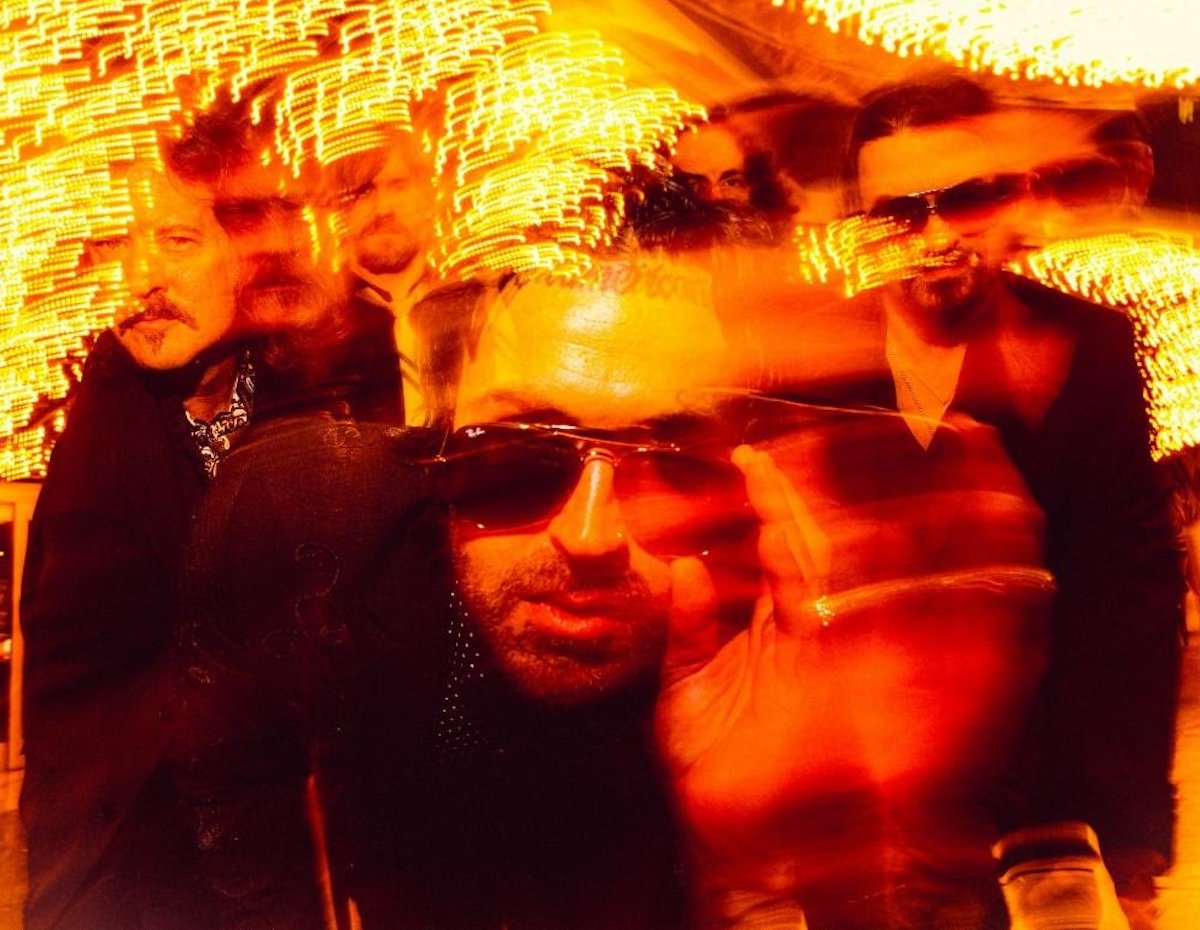
That eclecticism reveals itself early on Sometimes Y, which opens with the schizophrenic title track. Shifting gears from a trippy, sci-fi synth exploration into a gritty, Southern-rock-on-speed jam, the track puts Yelawolf’s lyrical acrobatics on full display as he spits out his lines a mile-a-minute. Like much of the record, the song is fierce and laced with defiance, but dig beneath the surface and you’ll find a bittersweet undercurrent of longing and desire, a hunger for something that remains perpetually out of reach. Infectious lead single Make Me A Believer channels the nervy charm of Ric Ocasek and the indelible hooks of Rick Nielsen as it reckons with self-worth and the need for external validation, while the brooding Rock & Roll Baby suggests a more psychedelic Lynyrd Skynyrd in its reflection on the spiritual and emotional consequences of growing up too fast, and the driving Radio (which sounds like something straight out of the soundtrack to some long lost, cult favorite ‘80s sci-fi action flick) spirals out of control in single-minded pursuit of the hustle.
Though Yelawolf occasionally raps on the album (the aching Shoe String finds him delivering slow, deliberate verses over languid pedal steel and a rich, cinematic landscape of found sounds captured on the road by Jennings), his singing is indeed revelatory here, channeling Tom Petty on tracks like the rapturous Jump Out The Window and mesmerizing Hole In My Head and even offering shades of Paul McCartney on the slow-burning piano ballad Catch You On The Other Side. But it’s perhaps it’s the understated intensity of his delivery on Fucked Up Day, which was written and recorded in the wake of the police killing of George Floyd, that best showcases just how versatile a vocalist Yelawolf truly is, building from a whisper to a snarl as he sings, “I’m not old but I seen this before / I been sold on this shit before.”
“We started recording the album the day the protests began, and there were people marching past the studio, cars honking, helicopters flying overhead all day every day,” says Jennings. “There was a heavy energy and a lot of uncertainty in the world at that moment, and it just seeped into everything we were doing.”
And yet, despite all that pain and uncertainty, there’s something reassuring about Sometimes Y, something inspiring in the way it refuses to surrender and insists on standing tall even in the face of doubt and hardship. Sure, it’s a hell of a record, but more than that, it’s a testament to the enduring and fundamental power of honest human connection, and there’s nothing more special than that.”


